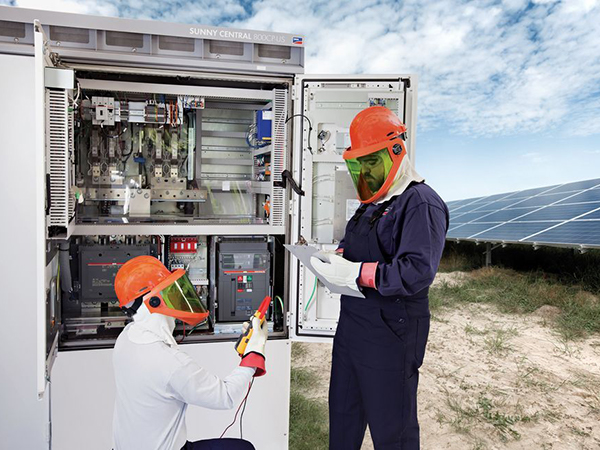Introduction (60 words):

In the constantly evolving world of renewable energy, there is a growing need for efficient and reliable off-grid systems to sustain various residential and commercial operations. In this regard, the integration of advanced off-grid inverters, specifically pertaining to cooling and heating functionalities, has emerged as a game-changer. In this blog, we delve into the significance of inverter cooling and heating units and highlight their advantages for those seeking sustainable energy solutions.
Understanding the Role of Off-Grid Inverters (80 words):
Off-grid inverters are devices that convert direct current (DC) power generated from renewable energy sources, such as solar panels or wind turbines, into alternating current (AC) power. Traditionally, these inverters have been exclusively used to power electrical appliances. However, with the advent of technological advancements, they can now support heating, cooling, and refrigeration as well. This innovation presents a major leap forward in off-grid energy solutions.
The Integral Merits of Inverter Cooling and Heating Units (120 words):
The integration of cooling and heating functionalities into off-grid inverters offers numerous benefits for end-users. Firstly, it eliminates the need for separate heating and cooling systems, thereby reducing space requirements and installation costs. Moreover, this integration optimizes the utilization of renewable energy generated in residential and commercial settings, resulting in enhanced energy efficiency. In addition, inverter cooling and heating units can be easily controlled and regulated to meet precise temperature requirements, ensuring optimal comfort regardless of external weather conditions.
Improved Energy Efficiency (100 words):
One of the most significant advantages of inverter cooling and heating units is their ability to augment energy efficiency in off-grid systems. By incorporating advanced technologies, such as variable speed compressors and intelligent control algorithms, these units can intelligently adapt to varying thermal demands and minimize energy wastage during operation. Consequently, this leads to reduced energy consumption, lower utility bills, and a reduced carbon footprint.
Optimized System Design and Integration (120 words):
The integration of cooling and heating functionalities directly into off-grid inverters allows for a streamlined and compact system design. This integration eliminates the need for separate HVAC (Heating, Ventilation, and Air Conditioning) units, which tend to be bulkier and require additional installation space. The compact design also translates into simplified installation and maintenance processes, making the overall system more convenient and cost-effective. Additionally, inverter cooling and heating units complement renewable energy sources exceptionally well, streamlining system integration and management.
Maximized System Performance and Reliability (100 words):
Inverter cooling and heating units offer superior performance and reliability compared to traditional off-grid systems. By integrating these functionalities, the risk of system downtime due to separate HVAC component failure is minimized. Furthermore, advanced control systems enable seamless adaptation to ever-changing demands, ensuring optimal performance regardless of external temperature variations. This translates to increased system longevity, improved user satisfaction, and reduced maintenance costs in the long run.
Conclusion (60 words):
As the demand for efficient and sustainable off-grid energy systems continues to rise, the integration of cooling and heating functionalities into off-grid inverters presents a highly promising solution. The numerous benefits, such as improved energy efficiency, optimized system design, and enhanced performance, make inverter cooling and heating units an attractive choice for individuals and businesses seeking reliable and eco-friendly energy solutions.
